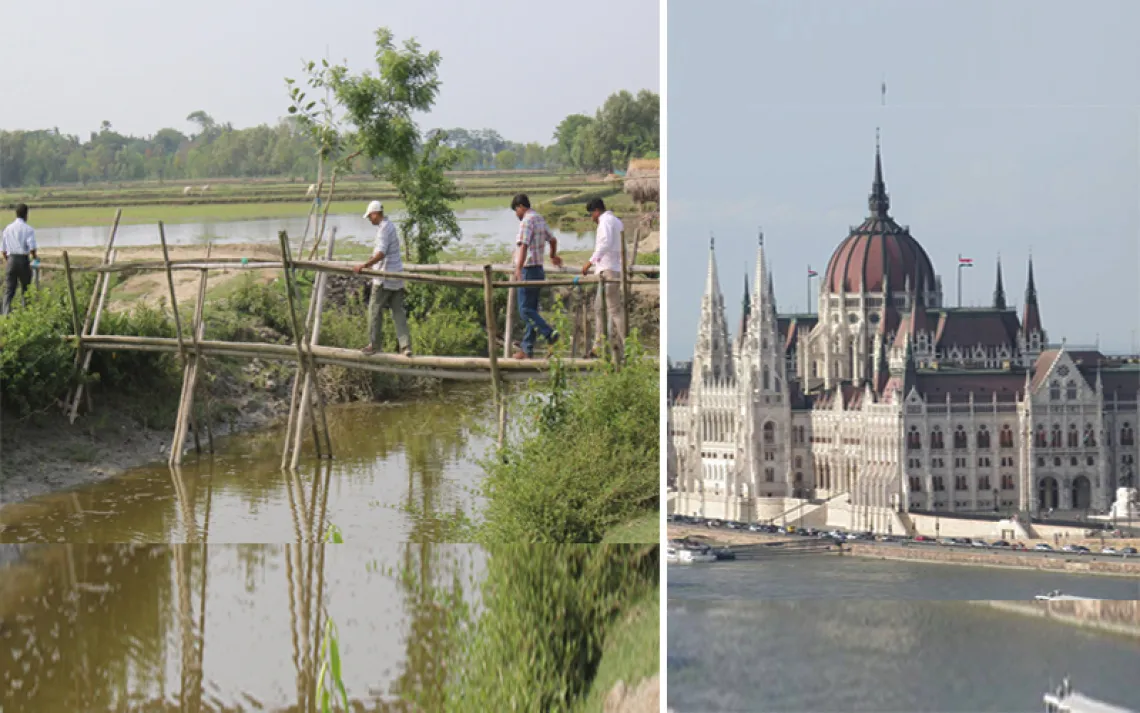Saleh Ahmed's 2016 Summer Trips

Pre-doctoral Exploratory Field Visit in Bangladesh (May-June 2016)

Saleh Ahmed, a second year PhD student at the Arid Lands Resource Sciences (with a minor in Global Change), doing his dissertation research on climate change adaptation and disaster risk management in Bangladesh. As part of that, he spent almost 2 months in coastal Bangladesh in last May and June, 2016 to. During this exploratory pre-doctoral visit, he had the opportunity to select his study site depending on some criteria (e.g., livelihood diversity, climate impacts, accessibility, safety & security), identified logistics supports that can be useful for his dissertation research, which is scheduled now for the Summer of 2017, and interacted with local community, local government representatives and NGO workers to get deeper insights on local adaptations to climate change impacts. He also shared the findings from this exploratory research to the USAID mission in Bangladesh and the International Centre for Climate Change and Development (ICCCAD). Apart from his academic and research engagements during this time, Saleh was invited by the Bangladesh Institute of Planners and Higher Studies Abroad-Bangladesh to discuss on the studies and research opportunities in the USA for Bangladeshi students/scholars. In next few months, Saleh will be finalizing his dissertation proposal based on the insights from this field visit as well as inputs from his dissertation committee members.
Summer Course Attendance in Budapest, Hungary (June 26 – July 2, 2016)

Saleh also participated at a summer school on “The Precautionary Principle: Governance of Innovation and Innovations in Governance” at the (link is external)Central European University in Budapest, Hungary(link is external). This summer school was jointly organized with the European Environment Agency. 23 participants all around the world gathered and discussed on various aspects of precautionary principles in sustainability governance. Apart from delving into precautionary principles in sustainability governance, Saleh highlighted the importance and implications of precautionary governance to improve farmers’ adaptation decisions in the developing world. With the colleagues from Ethiopia, India, France, and Ukraine, Saleh played an important role of developing a conceptual model on how precautionary principles can be useful for climate change adaptation at large. Saleh’s trip to Budapest for attending this exciting summer school was funded by the European Environmental Agency. For Saleh, it was quite an intellectually stimulating and professionally transformative trip to Europe!
